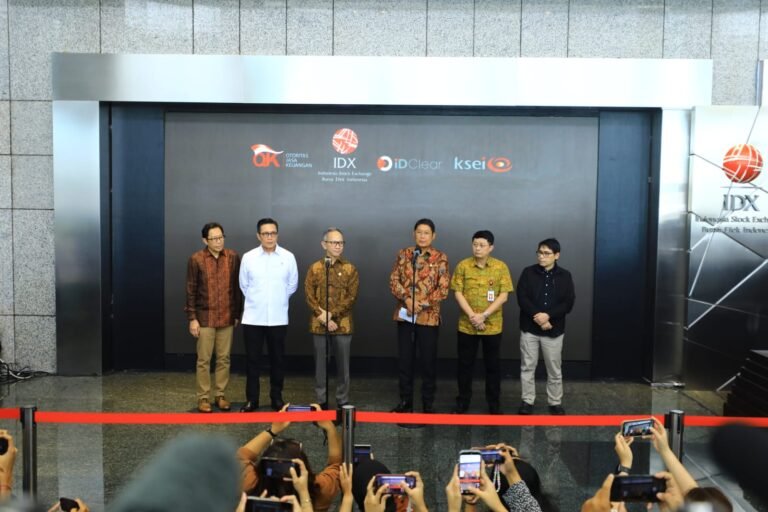
Teguh Anantawikrama. Foto: Dolumentasi pribadi/ukmdanbursa.com.
By Teguh Anantawikrama
Vice Chairman, Indonesian Chamber of Commerce (KADIN)
UKMDANBURSA.COM – The global economy isn’t short on surprises these days. From rising trade tensions to sluggish demand across major markets, many countries are being forced to rethink their economic playbooks.
China, in particular, is facing renewed pressure on its export performance—but it’s meeting the moment with a sharp and coordinated fiscal response. There are valuable lessons here for Indonesia, especially as we work to keep our own economy steady and forward-looking.

How China Is Responding to Trade Pressure
According to a recent analysis by the ASEAN+3 Macroeconomic Research Office (AMRO), China is using fiscal policy to cushion the impact of external shocks. This includes raising budget deficits, issuing more special-purpose bonds, and coordinating spending between the central and local governments.
They’re not just spending more—they’re spending smart:
• Direct assistance to households and small businesses hit hardest by trade frictions.
• Incentives for consumer spending—think targeted subsidies and digital shopping vouchers.
• Strengthening the social safety net to keep confidence and stability intact.
• Ensuring that local governments have the fiscal breathing room to act quickly and effectively.
At its core, this is all about maintaining internal economic momentum while navigating a challenging global landscape.
What This Means for Indonesia
Indonesia has weathered many economic storms before, and with the right fiscal approach, we can continue to build resilience—not just to survive, but to grow stronger. China’s approach reminds us that well-timed, well-placed fiscal action can make all the difference.
Here are four areas where Indonesia can adapt and lead:
- Support Domestic Demand with Confidence-Building Policies
During COVID-19, programs like Bantuan Langsung Tunai (Direct Cash Assistance/BLT) and Kartu Prakerja (Pre-Employment Card Program) helped millions of Indonesians stay afloat. These aren’t just emergency measures—they’re examples of how we can maintain domestic demand, even when global conditions are volatile. The government should consider keeping such instruments flexible and scalable.
- Empower MSMEs to Be Engines of Self-Reliance
Our 64 million micro, small, and medium enterprises (MSMEs) are the backbone of the economy. Many are exposed to supply chain disruptions or export slowdowns. We need to keep them resilient with easier access to working capital, digital transformation support, and green incentives. This isn’t just economic policy—it’s national strategy.
- Make Local Budgets Work Harder and Smarter
Like China’s use of special bonds to empower local governments, Indonesia should continue strengthening Dana Alokasi Khusus and Dana Desa (Special Allocation Fund and Village Fund), ensuring they fuel real, productive activities—especially in tourism, food security, and rural infrastructure. If we want strong local economies, we must give regions the tools to grow.
- Invest in What Makes Us Strong: Food, Energy, and People
Trade shocks often expose our weak spots. Let’s turn that into motivation to shore up food security, renewable energy, and workforce readiness. Whether it’s supporting farmers with fiscal tools or ensuring clean energy investment reaches the outer islands, this is how Indonesia stays resilient.

Fiscal Policy as a Tool for Independence
Indonesia doesn’t need to follow anyone’s model—but we must always be ready to learn, adapt, and act decisively. Fiscal policy, when used wisely, is more than numbers on a balance sheet. It’s a way to protect our people, unlock growth, and build trust in the future.
I’ve long believed that Indonesia’s strength lies in its community spirit, entrepreneurial energy, and willingness to collaborate. Whether through KADIN, HIPPI, or local initiatives, I’ve seen how the right mix of public support and private action can make a real impact.
In uncertain times, we don’t just react—we reposition. We consolidate value, invest in resilience, and turn every shock into an opportunity to rethink and reimagine our future. ***






3 thoughts on “Learning from China’s Fiscal Response to Trade Shocks”